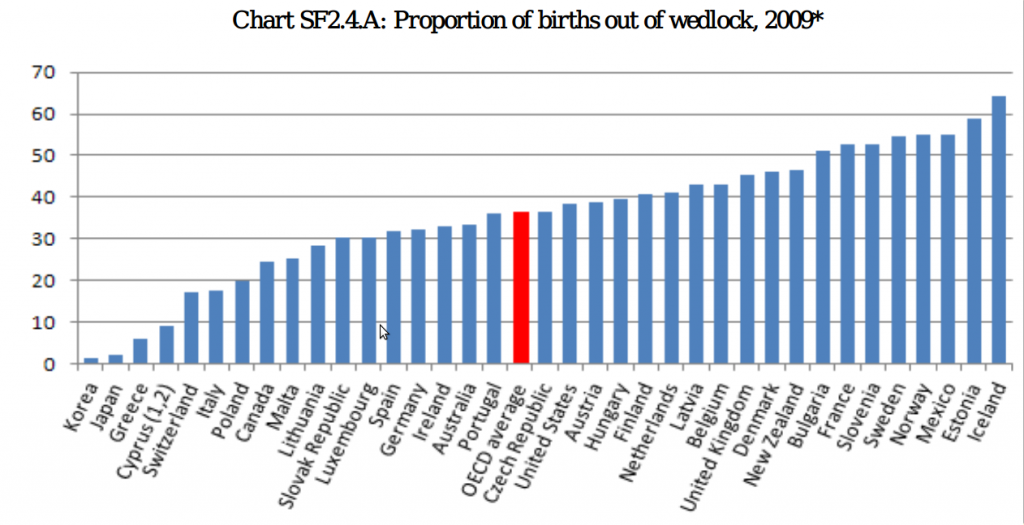I discuss marriage and adultery law quite often with my adult students. This a good article: Taiwan’s Archaic Adultery Law
[quote]Earlier this year, Taiwan’s Minister of Culture Lung Ying-tai reminded the Taiwanese of their archaic adultery law, saying that whenever foreign friends remark on it, she feels utterly embarrassed.
That caused a handful of fellow politicians to suggest a review of Taiwan’s Criminal Code Article 239 which provides that “married spouses who commit adultery be imprisoned for up to one year.” But the drive has led to nowhere. Even worse, decriminalization’s staunchest opponent, the Ministry of Justice, published a survey showing that 82.2 percent of the respondents don’t want the adultery law to be tinkered with.
This leaves ostensibly liberal Taiwan on an inglorious list with conservative South Korea and the Islamic countries.
While the adultery law itself is gender-neutral, the devil is in the details. It is an Antragsdelikt, an archaic oddment left over from the days when the Republic of China was actually in China and adopted the German civil code and criminal code of the 1930s. It is an offense prosecuted on complaint, which means that the case is closed as soon as the plaintiff drops the charge. In practice, that usually means unfaithful women are punished while cheating men walk free.
“If Taiwanese men get caught, they usually apologize, then the wives tend to drop the charge because men are often the economic providers in most families; but if it is the other way around the women are dragged into court,” said Chen Yi-chien, director of Shih Hsin University’s Graduate Institute for Gender Studies and vice president of the Awakening Foundation, a gender-equality NGO.
Child custody also plays a role, with women fearing a lawsuit more than men regardless which side has committed the crime. If the intimacy of a marriage is destroyed in court, it almost always leads to divorce, and the judge will then decide for the best interest of the child.
“So what’s best for the child? People would still look at work, education and property, putting women at a disadvantage because usually they quit their jobs to look after the children,” says Chen. To put the practical gender discrimination into plain statistics, 50 percent of women who sue their husbands for adultery will eventually drop charges, but only 23 percent of men will do so against their wives, resulting in a higher conviction rate among women, according to the Awakening Foundation.
But the adultery law’s nature is not the only legal oddity that effectively discriminates against Taiwan’s women. The zishu system is typically used by wives for revenge against the offending female involved in the affair, again putting women and not men on the receiving end. Under zishu, the would-be plaintiff can hire a lawyer to press a criminal charge directly against the third party without harming the spouse. This can be done if the district attorney rejects the opening of an adultery law suit, e.g., because of a lack of evidence. [/quote]
I actually gave this article to one of my advanced classes to read and discuss, and it caused quite a stir. The level of debate was depressingly primitive, although this may have been because it was dominated by some older (louder :aiyo: ) and less educated students. But many younger Taiwanese are extremely conservative too. A few weeks ago a guy - single. early thirties, I’ll call him John - described to me how his uncle got him in contact with a colleague with a daughter of marriageable age. The colleague phoned John and wanted to know, as a precondition to any ‘date’, if John happens to own his own house, car and does he have $10 million in savings in the bank? He was quite angry at the father’s presumptuousness but only because, in John words, ‘the girl is just a receptionist and is not even that pretty’. He’s was completely cool with the idea of, virtually, an arranged marriage. He had no qualms ‘negotiating’ through the father, it was simply that the price was outlandishly high for the product, even if it was only an opening gambit.
Many of my students giggle when I explain how we in the west use the term ‘partner’ to describe someone in a de facto relationship. I always have my laptop at hand and love to whip out this image and point out the rich countries above 50%, and almighty US at near 40%.

This is often too much for the more conservative students to take in. The more cosmopolitan ones quickly twig that the societies like France and Norway are not, in fact, collapsing due to a breakdown of social morals, but rather that they have a different system of family law which provides different incentives for marriage. Edit: Sometimes I get comments about what is perceived to be American/western cultural imperialism, like on the breakdown of the family unit and and the increase in individualism. Is freedom a construct of the West?  I don’t think so. Young Taiwanese are simply achieving financial independence within traditional social and legal structures. Personally, if I were given dictatorial powers in Taiwan
I don’t think so. Young Taiwanese are simply achieving financial independence within traditional social and legal structures. Personally, if I were given dictatorial powers in Taiwan  I’d take away all the excessive benefits given to public servants and distribute them to the elderly and the disabled, in a means tested system. But can you see it happening?
I’d take away all the excessive benefits given to public servants and distribute them to the elderly and the disabled, in a means tested system. But can you see it happening?



